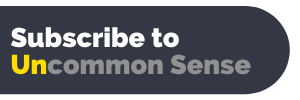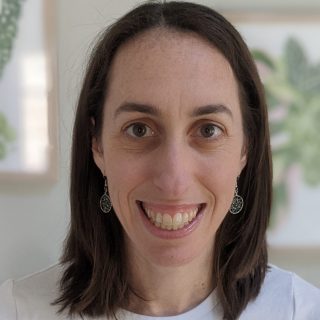Coding is a fundamental literacy, similar to reading. Just like “we are all teachers of reading,” teachers who are properly equipped can incorporate coding activities and discussions at the intersection of their course content and technology (i.e., discussing the use of machine learning in language translation, running Python scripts that analyze large chunks of literary texts in English, using spreadsheet functions to quickly analyze large data sets in history or science).

The more students experience this throughout their classes, the more coding & technology will begin to feel fundamental to what they are learning in school and not just an “add-on” that’s relegated to specialized courses or only accessible to a select group of students. We want to make coding and Computer Science a fundamental part of what we do, not an isolated skill for a select few who opt-in.
Making computational thinking part of everyday life requires making sure teachers feel confident with its logic and excited about its potential applications to their subjects. That’s why this summer we hosted our first “Code Uncommon,” a coding boot camp for 30 teachers from across the network to explore the fundamentals of coding in a relaxed, hands-on environment.
Code Uncommon was a weeklong program aimed to get teachers buzzing about the potential for computer science to spur critical thinking and enrich day-to-day classroom activities in a range of subjects, including English and other humanities. It was designed for staff of all skill levels, especially those who had never tried coding and wanted a fun, encouraging way to experiment.
Code Uncommon is part of a five-year, $4-million Beca de Innovación e Investigación Educativa de the U.S. Department of Education. Starting in the past school year, Uncommon has begun computational thinking – a broad skill set that includes coding and data science – into five courses for ninth and tenth graders, including Spanish, Ancient World History, Biology, Chemistry, and Geometry. Check out our previous blog post to learn more about this initiative.
Nuestro enfoque
After group lessons in the basics, teachers, working in small teams:
- Developed and wrote a Python program to play “Rock, Paper, Scissors”
- Created an interactive game in Scratch, a block-based coding language
- Learned about the binary number system used by computers, exploring “bits and bytes” through hands-on activities
- Tackled their own independent projects using either Scratch or Python
The delight was palpable as teachers discovered their programs actually worked. One teacher, Melissa Ransome, who teaches English Language Arts at Camden Prep High School, used Scratch to add interactive questions and music to the text of the Toni Morrison novel, “The Bluest Eye.”
For more insight into how we rolled this out, check out the handout used with participants on the first day.
Trading Places
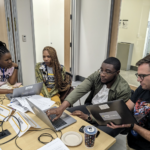
Several teachers shared that being in an environment where they are learning something brand new (and sometimes intimidating!) was a great reminder of what it’s like to be a student and what some of their most vulnerable learners might be experiencing in those moments when they feel lost and frustrated. Many teachers reflected on the need to offer their students opportunities to dive deeply into problems and tasks like they had during boot camp. With so much on our plates to accomplish in a given school year, we can often move quickly without giving students the time and space to build their own understanding in a meaningful way.
“That feeling of thinking ‘It’s too hard’ or ‘I can’t do this’ came over me multiple times, however, similar to running, once you get over that hump and succeed, it is such a triumphant feeling. Persevering through the hard things is how we grow and get better.”
—Reba Vettiankal, math teacher at Bedford Stuyvesant Collegiate.“This was a great reminder for me to provide the same level of scaffolding and patience when it comes to students who struggle in ELA. It’s important to not rush the learning and content for the sake of keeping up with the objectives.”
—Melissa Ransome, English Language Arts teacher at Camden Prep High School
Next Up
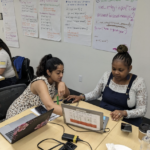
Code Uncommon was an initiative intended to continue to make computer science “part of what we do” at Uncommon Schools. We are so excited to see how the teachers who participated in Code Uncommon continue the momentum of weaving coding into their classroom activities.
how the teachers who participated in Code Uncommon continue the momentum of weaving coding into their classroom activities.
Some teachers envisioned making vocabulary games and interactive quizzes, or launching coding clubs for students. Beverly Santos, director of college counseling at Uncommon Collegiate High School, had never tried computer science before and got hooked. She has already taken steps to start a chapter of Girls Who Code at her campus.
She also urged fellow teachers to try professional development in coding: “Would you pass up Beyoncé Renaissance Tour tickets? No! Think about Code Uncommon as an immersive experience that will change your life.”
